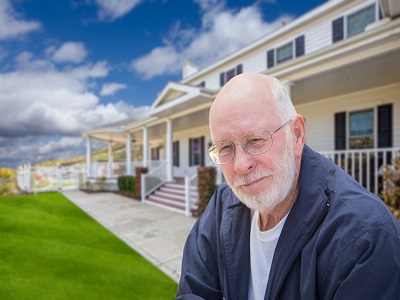
Senior citizens and others in their circle of influence face the challenge of declining cognition. People with cognitive conditions like dementia and Alzheimer’s disease, will eventually lose their ability to think. They might have difficulty learning, remembering, paying attention, and reasoning. These issues can make communication with older adults difficult. There are some things caregivers and family members can do to help make communication easier and less frustrating for all.
The Reality of Memory for Dementia Patients
There are four types of memory available to people: episodic memory, working memory, prospective memory, and semantic memory.
- Episodic memory is a type of memory that recalls past events, whether they are recent or distant. These memories may contain emotions or feelings that are related to them.
- Prospective memory: This is used for remembering dates, appointments, or other events that are scheduled in the future.
- Semantic memory: This refers to the ability to remember facts and words. It can also be used to identify faces and objects.
- Working memory: This is a short-term storage of information. These memories can be lost quickly or transferred to longer-term memory.
Dementia can affect all forms of memory, but most complaints revolve around episodic memories. Talking can be difficult due to this loss of memory. It can be difficult to talk with someone suffering from cognitive impairment. However, there are ways you can help. Memory care and proper interaction with the affected elderly will help.
How to communicate with dementia patients
Sometimes it can be difficult to know what to tell someone with dementia. It may be difficult to communicate with someone with dementia because of their difficulty in concentrating or hearing. These are some suggestions for communicating with someone with dementia.
- Recognize what they have said. Acknowledge what they’ve said, even if they don’t answer or speak out of context.
- Ask them to share their favorite stories. People with dementia may have difficulty remembering certain events, but photos can help them recall important ones.
- Take into account the time of day. Take advantage of their peak cognitive abilities to engage them.
- Make it easy for them to choose. You can keep the conversation moving along without any complications by using yes-no options or other similar techniques.
- Allow them to respond at their own pace. They may need to take time to process the information and form a response. Take your time as they decide what to say.
- Pay attention. If they don’t understand, ask them to rephrase the question.
- You must ensure that they are comfortable. You should seek out calm, peaceful surroundings with adequate lighting. Avoid radio and TV.
- Spend time with them. It may be difficult and slow to communicate. Be calm before you start a conversation.
- Smile and make eye contact. A genuine smile can help someone with memory problems. Smiles and eye contact show that you are happy to talk to them and that they will be encouraged and helped by your support.
- Talk clearly and slowly. Use short sentences, and allow them to respond.
- Take a look at your previous conversations. How was it possible to communicate with them earlier? Is there anything you could duplicate?
- Use their names. This shows respect and dignity. Although sweet words like “sweetie”, “honey”, and similar terms can be affectionate, they can also be demeaning.
- Pay attention to your body language. You can tell if they are communicating best through facial expressions, gestures, and movements. You can also use gentle touch to comfort them by considering their body language.
What Not to say to Someone with Dementia
There are certain steps that you shouldn’t take to communicate with dementia patients. These are some don’ts.
- Don’t argue. You won’t be able to reason with people with dementia because they don’t process information as well. You can also make them mad, and some dementia patients are prone to violence.
- Don’t ask them if they can remember what it was. It is difficult for people to remember things, which can frustrate and embarrass them. Instead of asking them to recall, prompt them.
- Do not bring up sensitive topics. It is possible to feel emotional about the death of a spouse, friend, or family member. Avoid divisive topics like politics.
- Do not complete their sentences. Let them finish what they are saying and keep your patience.
- Do not ignore them. Allow them to give you their opinion before asking your family and friends. Do not talk about them as if they were absent.
- Don’t interrogate. Ask questions and share your memories. But don’t make the conversation into a series of questions. This can make communication difficult or overwhelming.
- Do not be rude to them. People with cognitive disabilities should be treated with respect and patience, but not as children.
- Don’t raise your voice or speak sharply. You might also have hearing issues, but shouting won’t help.
- Do not use complicated sentences. Keep conversations simple.
- Do not tell them that they are wrong. It can be embarrassing to correct someone’s memory or other facts. This can cause communication to become tense.
- Avoid using metaphors and slang. They may be confused by confusing mental images or unfamiliar words.
Dealing with dementia patients can be difficult. That’s why Reflections Assisted Living at Carolina Forest aims to make life easier for people who have loved ones suffering from dementia or Alzheimer’s.
Reflections Assisted Living at Carolina Forest offers memory care for people who are suffering from dementia or Alzheimer’s. For more information, please contact us today!
Like our Facebook page for more great info about assisted living and memory care.
Reflections Assisted Living at Carolina Forest
219 Middleburg Dr
Myrtle Beach, SC 29579
(843) 903-0700
https://www.reflectionsassistedliving.com/




 Parkinson’s disease is known for its common symptom, Parkinsonian gait. This symptom can cause people to shuffle their feet while walking or freeze before they take a step. It may make it more difficult for loved ones to navigate each room because they might be stooped while walking. You can reduce the chance of falling by replacing thick carpeting with hard flooring or thin carpeting. Because people who shuffle often don’t pick their feet up when they walk, deep-pile carpeting is not recommended. This increases the chance of tripping over the thicker surface. Deep-pile carpeting also makes it more difficult to use wheelchairs and walkers.
Parkinson’s disease is known for its common symptom, Parkinsonian gait. This symptom can cause people to shuffle their feet while walking or freeze before they take a step. It may make it more difficult for loved ones to navigate each room because they might be stooped while walking. You can reduce the chance of falling by replacing thick carpeting with hard flooring or thin carpeting. Because people who shuffle often don’t pick their feet up when they walk, deep-pile carpeting is not recommended. This increases the chance of tripping over the thicker surface. Deep-pile carpeting also makes it more difficult to use wheelchairs and walkers.



